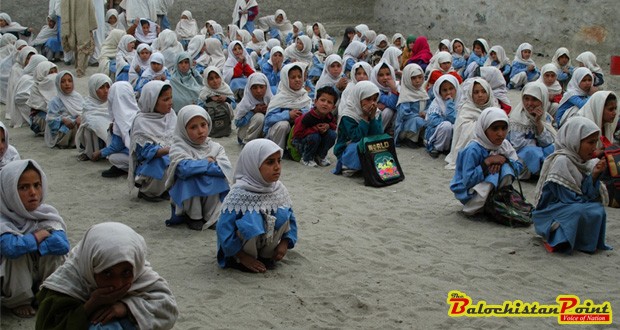Australia’s support to the World Bank Multi Donor Trust Fund for the Border Areas (MDTFBA) has helped to provide nearly 250 schools with infrastructure and new facilities in Balochistan Province, Pakistan.
The Promoting Girls Education in Balochistan (PGEB) program supported access to education and the retention of children in schools, with a special focus on girls. The program brought almost 39,000 children into school, including almost 33,500 girls from across Balochistan.
Girls Education in Balochistan (PGEB) program supported access to education and the retention of children in schools, with a special focus on girls. The program brought almost 39,000 children into school, including almost 33,500 girls from across Balochistan.
PGEB enabled the Government of Balochistan to construct buildings to house 130 girls’ schools that had been operating without shelter. The program also provided missing facilities, including toilets, drinking water, boundary walls and furniture, to a further almost 230 girls’ schools in Balochistan.
Building on the Balochistan Government’s experience of working with community schools, 260 new schools were set up in locations where no schools had previously existed. These locations were identified through active community engagement, including feedback provided by local women and an assessment of local teacher availability.
One beneficiary of the program is Zarghonay who is the youngest in a family of six children and a fifth grade student at a girls’ school in Pishin District in Balochistan. Originally a shelter-less school, it now comprises THREE ROOMS with a boundary wall and water and sanitation facilities.
with a boundary wall and water and sanitation facilities.
“My older sisters could not get an education because there was no primary school in the village then. It was difficult for me too, my school had no facilities, no water, no toilet nor were there any rooms for the 80 girl students.”
Like Zarghonay, many girls across 12 districts in Balochistan are now benefitting from the program.
“Had this school not been built, I would be out of school. My father did not want me to sit outdoors and study, I am happy now we have a beautiful school. It has a boundary wall so we can play with our friends and no-one outside the school can see us. We have water to drink too,” says Zarghonay. (Courtesy: Relief web)
Published in The Balochistan Point on December 7, 2016
 Balochistan Point Voice of Nation
Balochistan Point Voice of Nation




